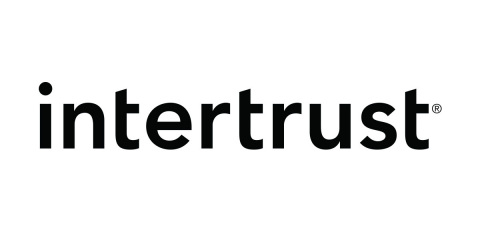Intertrust Releases 2021 Report on Mobile Finance App Security
Intertrust Releases 2021 Report on Mobile Finance App Security
Report of over 150 mobile finance apps reveals a high level of security vulnerabilities across both iOS and Android, highlighting the importance of in-app security
SAN FRANCISCO--(BUSINESS WIRE)--Intertrust, the pioneer in digital rights management (DRM) technology and leading provider of application security solutions, today released its 2021 State of Mobile Finance App Security Report. The report reveals that 77% of financial apps have at least one serious vulnerability that could lead to a data breach.
This report comes at a time where finance mobile app usage has rapidly accelerated, with the number of user sessions in finance apps increasing by up to 49% over the first half of 2020. Over the same period, cyberattacks against financial institutions rose by 118%, according to VMware.
The study’s overall findings suggest that while the COVID-19 pandemic accelerated the world’s shift to digital financial channels and innovative technologies like mobile contactless payments, mobile financial application security is not keeping up.
Cryptographic issues pose one of the most pervasive and serious threats, with 88% of analyzed apps failing one or more cryptographic tests. This means the encryption used in these financial apps can be easily broken by cybercriminals, potentially exposing confidential payment and customer data and putting the application code at risk for analysis and tampering.
Other main findings include:
- One or more security flaws were found in every app tested
- 84% of Android apps and 70% of iOS apps have at least one critical or high severity vulnerability
- 81% of finance apps leak data
- 49% of payment apps are vulnerable to encryption key extraction
- Banking apps contain more vulnerabilities than any other type of finance app
- Nearly three-quarters of high severity threats could have been mitigated using application protection technologies such as code obfuscation, tampering detection, and white-box cryptography
The report analyzed over 150 mobile finance applications split evenly between iOS and Android and delivers insights from four major financial sectors: payments, banking, investment/trading, and lending. The apps investigated originated in the U.S., UK, EU, Southeast Asia, and India. They were analyzed using an array of static application security testing (SAST) and dynamic application security testing (DAST) techniques based on the OWASP (Open Web Application Security Project) mobile app security guidelines.
“As mobile finance apps increasingly enter people’s everyday lives, it’s vital to understand the security risks associated with these apps and the ways to help mitigate them,” said David Maher, Chief Technology Officer and Executive Vice President at Intertrust.
“Poor financial app security puts both financial organizations and their customers at risk, especially given the rise in cyberattacks over the course of the pandemic. This report shines a light on the ongoing threats and helps finance app vendors understand the importance of building in security mechanisms from day one,” he added.
Download the full Intertrust 2021 State of Mobile Finance App Security Report.
Fintech organizations can find more information on mobile app security here.
About Intertrust
Intertrust provides trusted computing products and services to leading global corporations–from mobile, consumer electronics, and IoT manufacturers, to service providers and enterprise software platform companies. These products include the world’s leading digital rights management (DRM), software tamper resistance, and technologies to enable private data exchanges for various verticals including energy, entertainment, retail/marketing, automotive, fintech, and IoT. Founded in 1990, Intertrust is headquartered in Silicon Valley with regional offices in London, Tokyo, Mumbai, Bangalore, Beijing, Seoul, Riga, and Tallinn. The company has a legacy of invention, and its fundamental contributions in the areas of computer security and digital trust are globally recognized. Intertrust holds hundreds of patents that are key to Internet security, trust, and privacy management components of operating systems, trusted mobile code and networked operating environments, web services, and cloud computing. Additional information is available at intertrust.com, or follow us on Twitter or LinkedIn.
Contacts
Phil Keys
pkeys@intertrust.com
+1 408 616 1608
